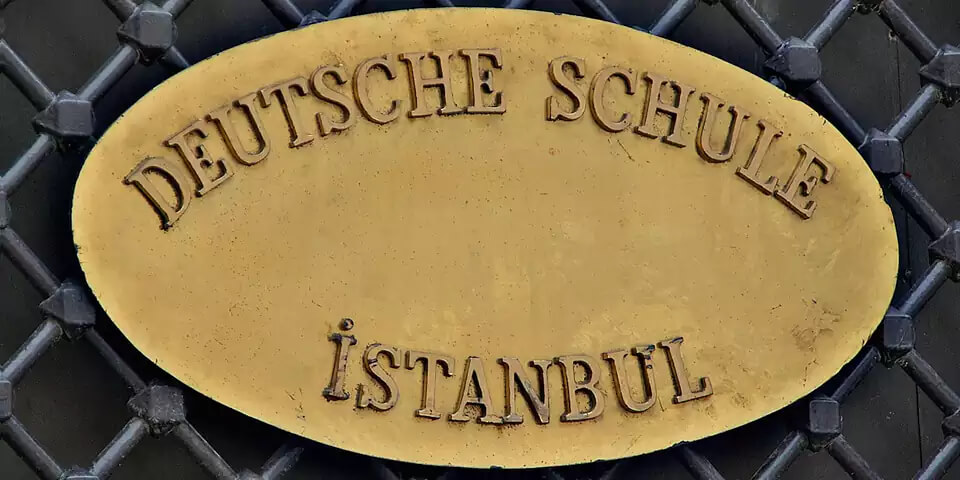Three schools in Turkey run by the German embassy will no longer be allowed to accept new students with Turkish or dual nationality as of the new academic year beginning in September, according to a report in the German Frankfurter Allgemeine Zeitung newspaper.
The German-run Ernst-Reuter School in Ankara announced earlier this week that youngsters possessing Turkish citizenship would not be accepted for the 2024-2025 academic year, following a diplomatic note.
“The Turkish Ministry of Foreign Affairs has issued a note that unfortunately prohibits us from accepting new students with Turkish citizenship … in the 2024/2025 academic year until further notice,” a statement from the school said on Tuesday. Current students with Turkish passports will still be able to enroll.
Two other German-run schools in İstanbul and İzmir are also affected by the same decision.
According to the newspaper, Turkey’s controversial move concerning German-run schools involves the principle of “reciprocity,” given the fact that the German Foreign Ministry has not allowed the Turkish government to open schools in the German cities of Berlin, Cologne and Frankfurt am Main.
The daily said negotiations were conducted concerning the establishment of Turkish schools in these cities between Turkish and German foreign ministry officials in 2019 and 2020 but that a draft agreement had to be shelved in the wake of public criticism and objections from the German cities involved.
Germany is home to the world’s biggest overseas community of people of Turkish origin, numbering around 2.8 million, many descendants of workers who came to the country to plug labor shortages in the 1960s and ’70s.
The Turkish government is criticized in Germany for promoting its agenda and exerting influence among the Turks in Germany through organizations affiliated with it or through mosques across the country. More than 900 mosques are run by the Turkish-Islamic Union for Religious Affairs (DİTİB), which operates under Turkey’s Religious Affairs Directorate.
There are fears and concerns that if allowed, Turkish schools in Germany could also be used by the Turkish government to promote its agenda and influence the Turks in the country.
According to the report, Turkey’s decision on German schools, which came without warning just weeks before the new school year, has led to distress and concern among the parents of the students.
Although current students are not affected, parents who spoke to the daily said they have concerns about the operation of these schools in the future considering the “arbitrariness” of the country’s abrupt notification.
The schools will be financially challenged in the absence of new students.
Some parents said they were considering moving back to Germany or relinquishing their Turkish citizenship.
The German Foreign Ministry confirmed to Deutsche Welle’s Turkish edition that three German schools in Turkey are affected by the decision and that the ministry is engaged in talks with Turkish authorities.
Three other German schools operating in Turkey are unaffected and will continue their operations.
The French Embassy in Ankara had previously announced that the education ministry demanded a new agreement for two French high schools in Ankara and İstanbul. Without such an agreement, Turkish students would not be allowed to enroll, and current students would be transferred to Turkish schools.
Education Minister Yusuf Tekin accused France last week of colonial behavior and emphasized that Turkey would follow legal procedures if the schools did not comply.
According to the ministry the schools should be affiliated with the ministry rather than the French embassy.
Turkey is unsettled by the fact that these schools, established for the children of foreign diplomats, are now serving mostly the children of Turkish families. The education ministry wants to exert its authority and implement the national curriculum at these schools, which is criticized by many for being ideological and promoting the government’s nationalist and Islamist mindset in disregard of the principle of secularism.
Tekin reiterated his stance on Tuesday, stating that 12 foreign-operated schools, including Ernst-Reuter, were not legally grounded according to Turkish regulations. “These schools are not recognized in our legislation. They must comply with our regulations or they will be deemed invalid,” Tekin said. He emphasized the need for international agreements to legitimize the schools.

